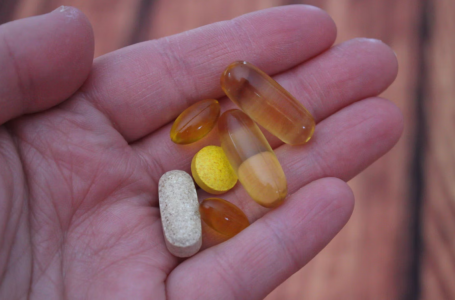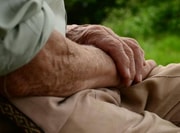Scientists say one vitamin supplement could help reduce skin cancer risk
- Replies 0
Sometimes the smallest habits or supplements can carry an influence far beyond what most expect, especially when it comes to long-term health.
Researchers continue to examine how everyday choices can affect not just wellness in the present, but also protection against future illnesses.
These findings can often reshape how people view prevention, treatment, and lifestyle adjustments.
One recent study has drawn attention to an accessible vitamin supplement and its potential impact on a common disease.
Scientists at Vanderbilt University Medical Center found that nicotinamide, a vitamin B3 derivative also known as niacinamide, was linked to a lower risk of skin cancer.
Among more than 33,000 US veterans studied, those who took 500 milligrams twice daily for over 30 days saw a 14 percent lower risk compared to non-users.
For people with a history of just one skin cancer, the risk reduction was even more dramatic at 54 percent.
However, the benefits declined for patients who had already developed multiple skin cancers before starting supplementation.

Study author Dr. Lee Wheless noted, “This study builds on several trials since 2015 that have shown nicotinamide to be effective at reducing skin cancer risk.”
“In practice, often we did not do a good job at starting this early and many dermatologists, myself included, have felt that that 23 percent seemed a bit optimistic [the reduction of skin cancer found in a previous study].”
“Our study had more than 60 times the number of patients [than] in the original 2015 study and was able to break it down by how many skin cancers a patient had had prior to starting nicotinamide, as well as control for a number of other risk factors.”
His explanation underscores both the importance of timing and the strength of larger-scale evidence. The mechanism behind nicotinamide’s protective effect appears to involve improved DNA repair and reduced accumulation of new sun-related damage.
Also read: Skin cancer changed Gordon Ramsay’s outlook—and his message is for you
“We hypothesize then that when patients have had only one or two skin cancers, this might be a proxy for lower overall sun damage, so slowing the rate of new DNA damage could slow the rate of new skin cancers,” Lee explained.
But once widespread sun damage or "field cancerization" has occurred, the supplement seems less effective. This suggests that early use of nicotinamide may play the most valuable role in prevention.
The researchers stress that nicotinamide is not a substitute for conventional practices such as wearing sunscreen, avoiding midday sun, and using protective clothing.
Still, experts see it as a practical addition to prevention strategies. “Nicotinamide, a simple vitamin B3 derivative, is showing real promise as a practical tool for skin cancer prevention,” said Yousuf Mohammed, senior research fellow at the Frazer Institute.
Also read: Could this simple at-home test reveal hidden cancer before it's too late?
He highlighted that patients who started supplementation earlier saw the strongest protection, with squamous cell carcinoma risk dropping by more than 20 percent.
One of nicotinamide’s biggest advantages lies in its accessibility, safety, and affordability compared to more invasive or costly treatments.
Mohammed added, “Overall, these results reinforce what many dermatologists have long suspected, nicotinamide is an underutilized, low-risk intervention that can make a difference in reducing skin cancer burden, especially for patients with an early history of disease.”
While it showed limited benefit in transplant recipients, the findings still point to selective advantages for certain high-risk groups.
The next steps, according to researchers, involve prospective studies and improved ways of identifying who may benefit most from early intervention.
Read next: Could adding this vitamin to your green tea help protect your brain?

Would you consider adding a vitamin supplement like nicotinamide to your daily routine if it could lower your risk of skin cancer? Share your thoughts in the comments below.
Researchers continue to examine how everyday choices can affect not just wellness in the present, but also protection against future illnesses.
These findings can often reshape how people view prevention, treatment, and lifestyle adjustments.
One recent study has drawn attention to an accessible vitamin supplement and its potential impact on a common disease.
Scientists at Vanderbilt University Medical Center found that nicotinamide, a vitamin B3 derivative also known as niacinamide, was linked to a lower risk of skin cancer.
Among more than 33,000 US veterans studied, those who took 500 milligrams twice daily for over 30 days saw a 14 percent lower risk compared to non-users.
For people with a history of just one skin cancer, the risk reduction was even more dramatic at 54 percent.
However, the benefits declined for patients who had already developed multiple skin cancers before starting supplementation.

Scientists say one vitamin supplement could help reduce skin cancer risk. Image source: Kayla Maurais / Unsplash
Study author Dr. Lee Wheless noted, “This study builds on several trials since 2015 that have shown nicotinamide to be effective at reducing skin cancer risk.”
“In practice, often we did not do a good job at starting this early and many dermatologists, myself included, have felt that that 23 percent seemed a bit optimistic [the reduction of skin cancer found in a previous study].”
“Our study had more than 60 times the number of patients [than] in the original 2015 study and was able to break it down by how many skin cancers a patient had had prior to starting nicotinamide, as well as control for a number of other risk factors.”
His explanation underscores both the importance of timing and the strength of larger-scale evidence. The mechanism behind nicotinamide’s protective effect appears to involve improved DNA repair and reduced accumulation of new sun-related damage.
Also read: Skin cancer changed Gordon Ramsay’s outlook—and his message is for you
“We hypothesize then that when patients have had only one or two skin cancers, this might be a proxy for lower overall sun damage, so slowing the rate of new DNA damage could slow the rate of new skin cancers,” Lee explained.
But once widespread sun damage or "field cancerization" has occurred, the supplement seems less effective. This suggests that early use of nicotinamide may play the most valuable role in prevention.
The researchers stress that nicotinamide is not a substitute for conventional practices such as wearing sunscreen, avoiding midday sun, and using protective clothing.
Still, experts see it as a practical addition to prevention strategies. “Nicotinamide, a simple vitamin B3 derivative, is showing real promise as a practical tool for skin cancer prevention,” said Yousuf Mohammed, senior research fellow at the Frazer Institute.
Also read: Could this simple at-home test reveal hidden cancer before it's too late?
He highlighted that patients who started supplementation earlier saw the strongest protection, with squamous cell carcinoma risk dropping by more than 20 percent.
One of nicotinamide’s biggest advantages lies in its accessibility, safety, and affordability compared to more invasive or costly treatments.
Mohammed added, “Overall, these results reinforce what many dermatologists have long suspected, nicotinamide is an underutilized, low-risk intervention that can make a difference in reducing skin cancer burden, especially for patients with an early history of disease.”
While it showed limited benefit in transplant recipients, the findings still point to selective advantages for certain high-risk groups.
The next steps, according to researchers, involve prospective studies and improved ways of identifying who may benefit most from early intervention.
Read next: Could adding this vitamin to your green tea help protect your brain?
Key Takeaways
- Researchers found that nicotinamide, a vitamin B3 supplement, may reduce the risk of skin cancer by improving DNA repair and slowing new damage.
- In a study of more than 33,000 US veterans, users of the supplement had a 14 percent lower risk overall, with even greater reductions for those with just one prior case.
- Experts emphasized that the timing of use mattered, as earlier supplementation provided stronger protection.
- The supplement’s affordability and safety make it a promising preventive option, though sun protection remains essential.






